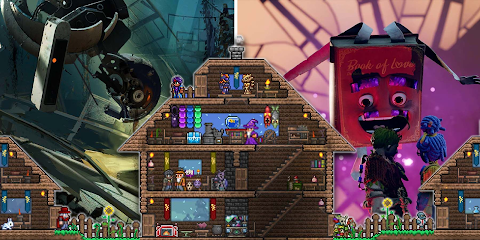Exploring the Irresistible Allure of the Enemy to Lovers Trope
In the vast landscape of literature, there exists a narrative device that has captured the hearts of readers and viewers alike—the "Enemy to Lovers" trope. This timeless trope, characterized by the transformation of animosity into passionate affection, has the power to invoke a whirlwind of emotions, leaving audiences both captivated and conflicted. As we delve into the pages of stories where adversaries turn into soulmates, we uncover the reasons behind the trope's enduring popularity and its ability to resonate with our deepest desires.
From Clashing Swords to Entwined Hearts: The Journey of Adversaries
At first glance, the idea of two characters who despise each other eventually falling in love might seem counterintuitive. Yet, it is precisely this friction that ignites the spark which drives the narrative forward. The initial tension draws readers in, setting the stage for a captivating transformation that challenges preconceived notions and tests the limits of human emotions.
The Complex Dance of Emotions
What makes the enemy to lovers trope so compelling is the emotional complexity it brings to the characters and their relationship. As they navigate the rocky terrain from enemies to lovers, layers of their personalities are peeled back, revealing vulnerabilities and insecurities that make them more relatable and human. This emotional depth fosters a deep connection between the audience and the characters, as readers witness the characters' growth and self-discovery.
The Appeal of Redemption and Growth
Central to this trope is the idea of redemption and personal growth. Watching characters evolve from their initial antagonistic personas to individuals who display empathy, understanding, and love resonates with our innate belief in the transformative power of love. It reinforces the notion that people can change for the better, given the right circumstances and motivations.
The Forbidden and Taboo
Human nature has an inexplicable attraction to the forbidden, the taboo, and the unconventional. The enemy to lovers trope plays on this fascination by juxtaposing the characters' societal roles or personal beliefs. The tension between what is expected and what is desired creates an irresistible allure that draws readers deeper into the story.
The Ultimate Test of Love
The journey from enemies to lovers is riddled with obstacles that put the characters' feelings to the test. These challenges not only add depth to the plot but also highlight the characters' commitment to their newfound affection. Whether it's external pressures or internal doubts, the hurdles they overcome strengthen the bond they share, making their love all the more triumphant.
Exploring Iconic Examples
Numerous stories across various genres have embraced the enemy to lovers trope, leaving an indelible mark on literature and pop culture. From Shakespeare's "Romeo and Juliet" to Jane Austen's "Pride and Prejudice," and from enemies turned allies in "Harry Potter" to the slow-burning love in "Poldark," the trope's versatility is evident in its ability to transcend time and genres.
The Timelessness of a Compelling Narrative
The enemy to lovers trope has persisted throughout literary history because it speaks to the very essence of human nature—the capacity to change, to forgive, and to love against all odds. As readers, we are drawn to stories that reflect our own journeys of growth, connection, and transformation. The trope reminds us that even the most unlikely alliances can blossom into something beautiful, given the right circumstances and a willingness to open our hearts.
In the end, the enemy to lovers trope continues to capture our imaginations and remind us of the power of love to bridge even the widest of divides. It's a testament to the enduring allure of stories that challenge our perceptions, tug at our heartstrings, and remind us that love is a force that knows no boundaries. So, as we turn the pages of these captivating narratives, we are reminded that love, in all its forms, has the power to conquer all.




Comments
Post a Comment